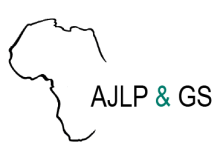Resource information
Context and backgroundA Spatial Data Infrastructure (SDI) for the Rabat-Salé-Kenitra (RSK) region represents a major opportunity to coordinate exchanges and share spatial data between several actors: producers or users of spatially referenced data on a regional scale.Goal and ObjectivesThe objective of this article is to analyze the potentialities and handicaps of the implementation of such a spatial data infrastructure in order to promote a better coordination of the different actors of the regional territories.MethodologyTo achieve this objective, a scientific survey was conducted to collect an inventory of spatial data sharing at the RSK region level as well as the perspective of its implementation.This survey was based on live interviews and an online questionnaire in order to reach all territorial managers and producers of spatial information. This questionnaire is made up of four chapters which respectively concern information on the surveyed organization, the processing of spatial data, the elements related to the production and use of this spatial information and finally the partnerships and collaboration component.ResultsThrough this study, it was found that a future SDI at the regional level will have to respect certain common objectives which are the keys to the success of the project, in particular in the appropriation of the platform by the users, and in the quality of the information conveyed.It was also noted that at the level of information storage and data handling, it will be necessary to ensure knowledge of the exact sources and definitions (metadata), nomenclatures and standards of the information displayed. In addition, the spatial data infrastructure will have to rationalize data from multiple partners.A list of the data collected has been established. These data are judged to be of average quality and their availability is practically inaccessible in an official manner even in the event of several reminders. The majority of these data are obtained informally.


